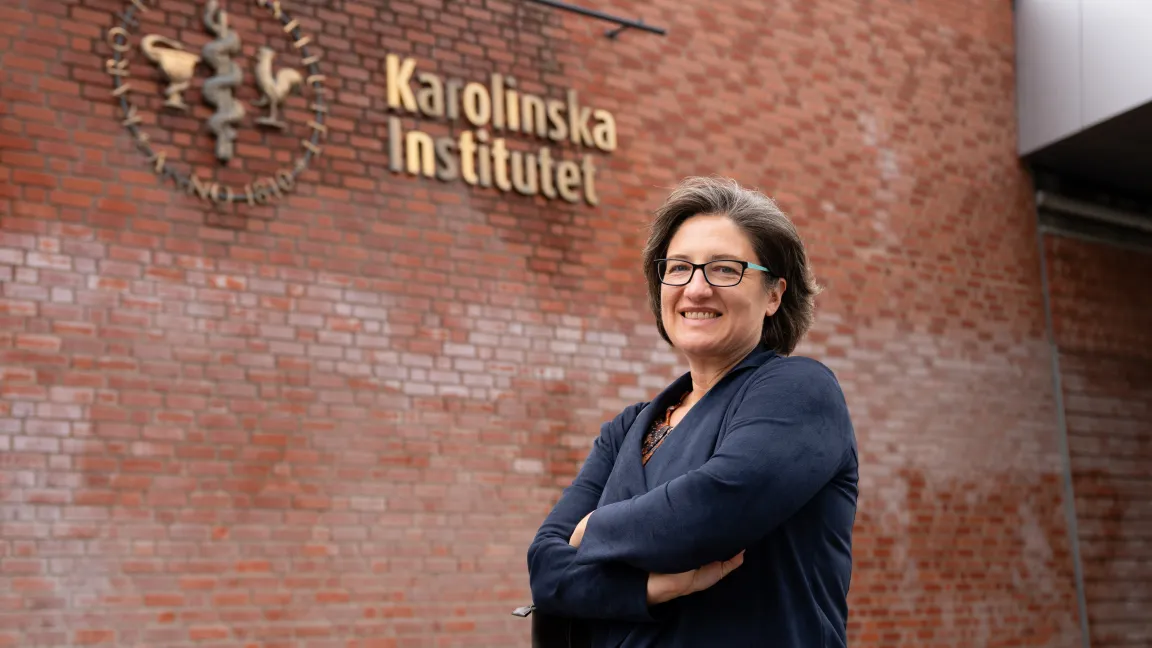NMP researcher joins global cohort advancing medical education research
Dr. Andrea Gingerich has been named a 2025 Karolinska Institutet Prize for Research in Medical Education (KIPRIME) Fellow. The UBC Northern Medical Program Associate Professor and UNBC faculty member is just one of 14 scholars worldwide selected for the prestigious program, and the only Canadian.

For Dr. Andrea Gingerich, research has always been about understanding people — how they learn, how they work, and how they connect with their communities. That dedication to exploring the human side of medical education has now earned the UBC Northern Medical Program Associate Professor international recognition as a Karolinska Institutet Prize for Research in Medical Education (KIPRIME) Fellow. She is one of just 14 scholars worldwide selected for the prestigious program, and the only Canadian among them.
Earlier this month, Gingerich travelled to Sweden to take part in the intensive, multi-day fellowship program, joining some of the world’s leading thinkers in medical education at the Karolinska Institutet, the same university that awards the Nobel Prize in Physiology or Medicine.
“It’s overwhelming to be named as a KIPRIME Fellow because it’s a momentous honour,” said Gingerich. “It’s a once-in-a-lifetime opportunity to learn from prize-winning researchers and alongside a highly productive cohort of my peers.”
Hosted in Stockholm, the KIPRIME Fellows Initiative brings together a diverse group of mid-career researchers from around the world for mentorship, collaboration, and leadership development. Fellows are nominated by previous KIPRIME Prize laureates and competitively selected for the program, which aims to nurture the next generation of global leaders in medical education research.
This year’s cohort includes scholars from Chile, Brazil, Denmark, New Zealand, Taiwan, Japan, the Netherlands, Mexico, the United States, Iran, the United Arab Emirates and Sweden.
“The KIPRIME Fellowship has rapidly become an exceptionally prestigious indicator of up-and-coming stardom in medical education scholarship,” explained Dr. Kevin Eva, an Associate Director and Scientist in the Centre for Health Education Scholarship at UBC Faculty of Medicine, who was awarded the Karolinska Institutet Prize for Research in Medical Education in 2022 and is now a faculty member for the KIPRIME Fellowship. “Andrea’s situation is quite unique by virtue of her working predominantly in a regional medical school campus, at the UBC Northern Medical Program in Prince George. Her inclusion demonstrates that one can do outstanding work that will be recognized on a global stage from an array of contexts.”
“Dr. Gingerich far exceeded all expectations while participating in our fellowship program,” said Dr. Jonas Nordquist, Director of the KIPRIME Fellows Initiative. “Her final presentation on the very last day was remarkable and genuinely outstanding. We are immensely proud of her. She embodies the very spirit of a true KIPRIME Fellow.”
For Gingerich, the fellowship honour underscored the growing relevance of her work in understanding how medical professionals learn, assess, and make decisions — particularly in diverse and community-based settings.
In her earlier research, Gingerich explored how health professionals learn, assess, and make decisions.
“She has become a leader in medical education by shining light on rater judgment,” noted Eva, “and how we can better use it to inform when trainees should be trusted with increasing amounts of clinical responsibility.”
Gingerich’s current work examines inequitable access to healthcare in rural areas, and, in particular, why some health professionals choose not to practice in those settings.
“Health professionals stay in rural practice when they feel integrated into the community, but that can be challenging for professionals in smaller communities who need to navigate care delivery and intertwined social relationships in tightly knit communities,” said Gingerich. “Our work aims to learn from rural health professionals who have acquired expertise in navigating overlapping relationships to better prepare learners for both living well and practising well in rural communities.”